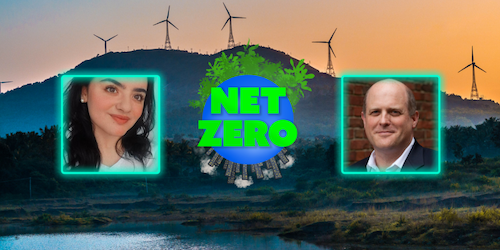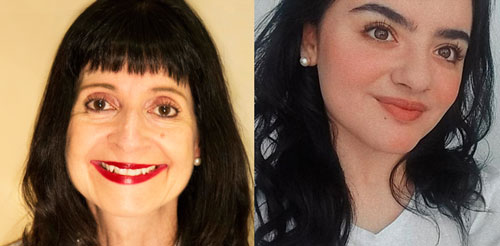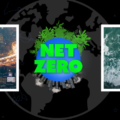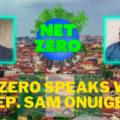اس مہینے, ناظرین اسکرین کرسکتے ہیں نیٹ زیرو ڈینیئل شراگ کے ساتھ بات کرتا ہے۔ سیارے کلاس روم نیٹ ورک پر, the latest production in the Net Zero series. This film is curated for the Planet Classroom Network by Protect our Planet and Planet Classroom.
Carbon capture and storage technologies have been around for decades and are recognized as effective ways to reduce carbon emissions. So why haven’t they taken off?
ڈینیئل پی۔. Schrag is the Sturgis Hooper Professor of Geology at Harvard University, Professor of Environmental Science and Engineering, and Director of the Harvard University Center for the Environment. Schrag served on President Obama’s Council of Advisors on Science and Technology. In نیٹ زیرو ڈینیئل شراگ کے ساتھ بات کرتا ہے۔, Climate Activist Nahid Pérez Ayala gets Schrag’s answers on the policies that should take priority for the world to achieve Net Zero.
تعلیم کے لئے گلوبل تلاش welcomes Climate Activist Nahid Perez Ayala from Mexico.
Nahid, why did you select Professor Daniel Schrag to interview? اس کے بارے میں آپ کو کس چیز نے متاثر کیا۔?
I selected Professor Daniel Schrag because of his experience in energy technology and policy, including carbon capture and storage, and low-carbon synthetic fuels. اس کے علاوہ, I was interested in his work in geochemistry and climatology.
آپ کے انٹرویو کے بارے میں آپ کو کس چیز نے سب سے زیادہ حیران کیا۔?
I was surprised by his comments about achieving Net Zero and the fact that no country is on track to meet the aspirations they committed to at COP26.
کیا ہیں 3 main takeaways for the Net Zero audience from your interview?
I think the first main takeaway is that coal is responsible for a little less than half of global emissions of CO2. There are many countries in the world that rely heavily on coal as a source of energy for electricity generation because it is relatively cheap and abundant. It’s by far the dirtiest fuel in terms of greenhouse gas emissions, but also in terms of conventional pollution and its effects on public health. We discussed how the ambition and profits of some people outweigh the environmental and health impacts of using coal as an energy source.
دوم, we talked about how people can come up with various types of budgets for how much fossil fuel we can use to stay under any target like 1.5º or 2º, but it’s just not realistic in terms of the way the world is currently trending.
آخر, Schrag believes we still have a window of opportunity to make positive change, including switching to renewables such as electric transportation. However, people need to change their habits and their demands in order to change the supply.
Thank you Nahid!
C. M. Rubin and Nahid Perez Ayala
مت چھوڑیں۔ نیٹ زیرو ڈینیئل شراگ کے ساتھ بات کرتا ہے۔, اب سیارہ کلاس روم نیٹ ورک پر اسکریننگ۔. This film is curated for the Planet Classroom Network by Protect our Planet and Planet Classroom.







حالیہ تبصرے